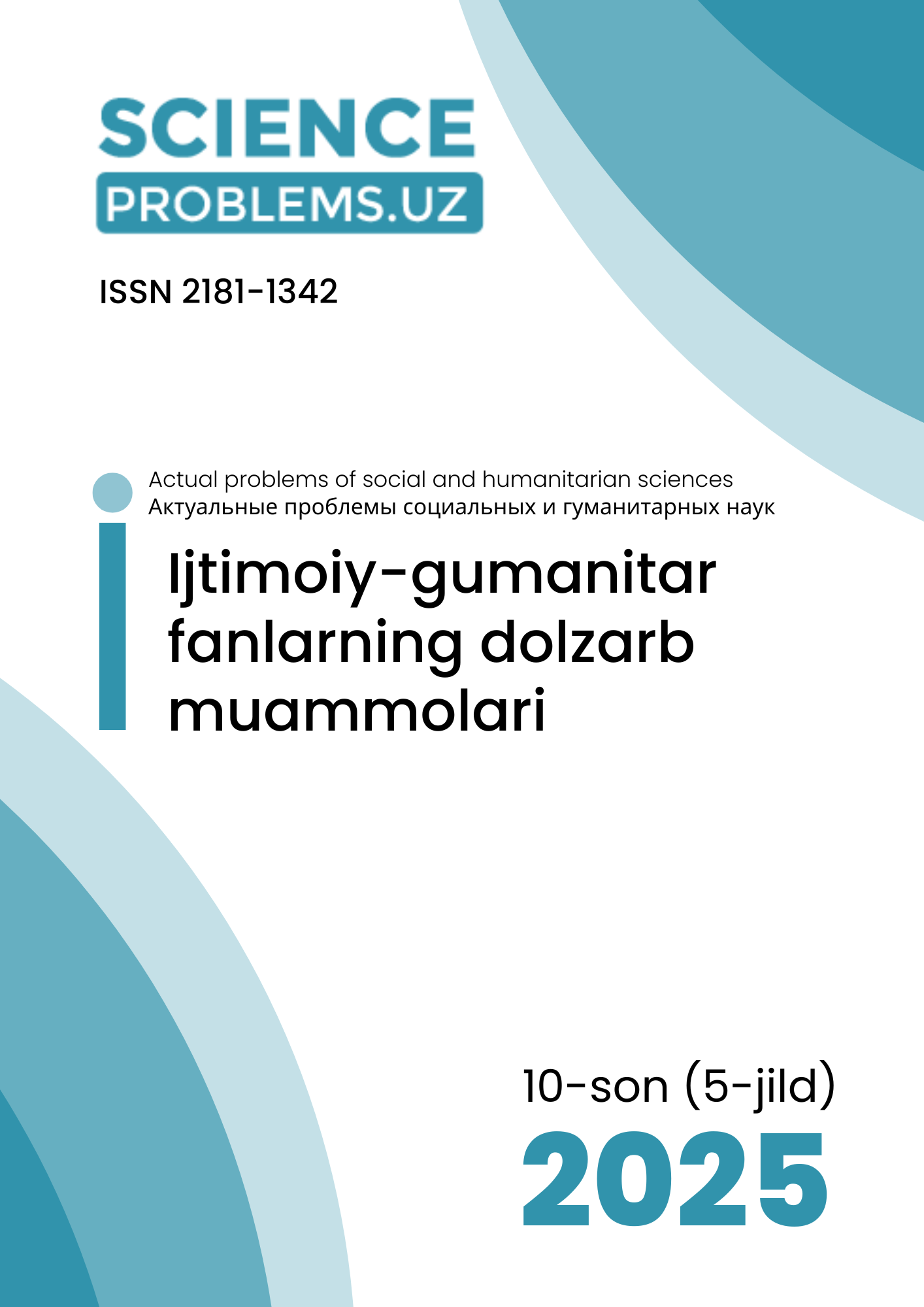ABU ALI IBN SINO'S MYSTICAL VIEWS: ON THE EXAMPLE OF THE WORK "TA`BIRI MANZIL"
DOI:
https://doi.org/10.47390/SPR1342V5I10Y2025N32Keywords:
Tasawwuf, kindness, truth, aesthetics, man, “World Wisdom”, “Tadbiri Manzil”, inner beauty, hierarchy, love, wisdom, inner world, soul, divine substance.Abstract
According to Ibn Sina, the life of a person endowed with these qualities will be good and useful. These qualities serve as the basis of wealth and wisdom, and together with excellent upbringing, noble mood and skills, they are a source of beauty, charm and grace. This great hymn dedicated to human beauty finds special expression in Ibn Sina’s work “World Wisdom” (“Tadbiri Manzil”). His next words, dedicated to describing the external and internal beauty of a person, represent the sum of all his aesthetic assessments. According to Ibn Sina, the aesthetic world of man, his beauty comes directly from his intellectual and moral nature. The circle of all virtues is crowned by reason itself, reason and feelings, thanks to which man becomes the most perfect and highest creature of nature. Almighty God, says the scientist, gave humanity his good qualities, thanks to which man’s place in the universe in comparison with the multitude of his creations became higher and more preferable. Thanks to this privilege, man became the most perfect of nature's creatures in his essence and the most harmonious of creatures in his body, he became the most beautiful creature. The description of man's place in the hierarchy of existence, as well as the physical and external nature of man, is defined as the most vivid and glorious assessment of man in all the medieval philosophical thought of the East.
References
1. Ибн-Сино. Тадбири манзил. ( Домоводство). Избр. произ. - Соч. Т.Н. С. 13.
2. Ибн Сино. Хикмати машрикия. - С. 100
3. Ибн Сина. Трактат о любви. / перев.: Серебряков С. Б. Трактат Ибн Сины о любви. - С 48.
4. D. Gutas. Avicenna and the Aristotelen tradition, LEIDEN-BOSTON. 2014.-P.616. ;
5. Шамсутдинова Н.К. Метафизика контекстида Абу Али Ибн Синонинг тасаввуфий қарашлари.// Imom Buxoriy saboqlari. Ma’naviy-ma’rifiy, ilmiy adabiy jurnal // Samarqand. 2023-№4. B. 128-129.
6. Шамсутдинова Н.К. Абу Али Ибн Сино тасаввуфий қарашларинингиррационал моҳияти.// Journal of central Asian renaissance // https://www.tadqiqot.uz/index.php/renaissance/article/view/8419/801
7. Mahdi M. Islamic philosophy: the Eastern and Western schools. - "Cultures". - Paris, 1978, Vol 4, №1.
8. Safarova, N. O. Philosophy of the algorithm of Abu Raikhan Beruniy.// Theoretical & Applied Science. 12(104) 2021.- Pages 419-421. https://dx.doi.org/10.15863/TAS.2021.12.104.28
9. Bown H. Avicenna and the christian philosophers in Baghdad— in: Islamica philosophy and classical tradition. Colombia. 1973.P. 247.; Morewedge P. Ibn SIna's concept of the Self.— «Philosophical forum». Boston, 1973, vol. 4, N 1.volume 4, issue 2. 2023. P. 47-54.
10. Morewedge P. The logic of emanationism and sufism in the philosophy of Ibn SIna (Avicenna). — «Journal of the American Oriental society». Baltimore, 1971, vol. 91, N 4; 1972, vol. 92, N1.
11. Turdiyev, B. S. (2021). Cultural and educational development of society in the scientific heritage of world philosophers. Academic research in educational sciences, 2(4), 443-451.
12. Turdiyev, B. S., & Wekke, I. S. (2024). Illuminating the Legacy of Al-Farabi, Ibn Sina, and Al-Biruni: Exploring Political and Legal Philosophies in Transoxiana. Asian Journal of Basic Science & Research, 6(2), 159-166.








